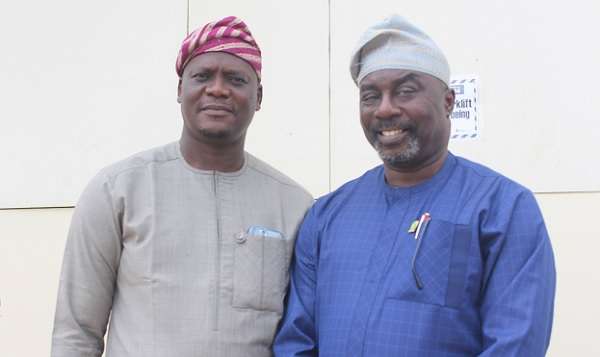– Visits Bond’s ultra-modern facility

Following the recent move by the Federal Government to reduce the country’s drug importation from 60 to 40 per cent, President of the Pharmaceutical Society of Nigeria (PSN), Prof. Cyril Usifoh, has disclosed that, as laudable as the decision was, it was taken without vital inputs from stakeholders in the pharmaceutical industry.
Usifoh, who made the disclosure during a recent visit to the state-of-the-art manufacturing factory of Bond Chemical Industries Limited, in Awe, Oyo State, stressed that, without putting the necessary measures in place to ensure that local manufacturers meet up with the 60 per cent allotted to them, the import reduction may become counterproductive.
According to him, “There are manufacturing companies situated in parts of the country where they don’t have good road infrastructure to get their products to the end users. How will they meet up? Also, there are no credit facilities for the majority of these pharmaceutical manufacturers to produce these drugs, so how will they cope?”
“By reducing importation and increasing local manufacturing, it will create massive job opportunities and reduce the rate of fake drugs in the country. But what have we put in place to ensure that companies like Bond Chemical Industries Limited have good roads to move their goods, and also have enough credit facility to expand and meet up with the 60 per cent?”
He added: “I am saying this, without any doubt, that most of the fake and substandard drugs come through our borders, due to medicine insecurity. So, the reduction is a positive decision, but I hope it’s not too late for the government to do the right thing by involving the stakeholders and do other things are necessary to truly reduce the importation of drugs from 60 per cent to 40 per cent.”
While commending the 87-year-old Chairman of Bond, Chief Theophilos Adebowale Omotosho, the Asiwaju of Afijio Land, Oyo State, Usifoh averred that the deployment of technology in the running of the ultramodern factory is a welcome development.
The PSN boss, who went round the factory, along with the Bond’s team, described it a world-class industry, equipped with hi-tech facilities for the production of tablets, capsules, dry powder, liquids, and other products.
Usifoh also seized the occasion to charge the National Agency for Food and Drugs Administration and Control (NAFDAC) to review what he described as its unnecessary billing system on registration of drugs, adding that the agency’s attempts at being a fund-generating body make drug unaffordable in most cases.
While welcoming the PSN president, Pharm. Clement Adeboye, general manager, Bond Chemical, expressed delight at the visit, stating that the company appreciated his efforts towards repositioning pharmaceutical practice in Nigeria.
Addressing Usifoh, Adeboye said: “At this time that we have the opportunity of meeting you, we would urge you to please put in your effort to ensure that government patronises our products and other locally manufactured products, as they are the biggest buyer of pharmaceuticals. With their consistent patronage, it will help us to solve so many challenges.”
Adeboye, who stood in for Omotosho, said Bond is a local manufacturer of high-quality, safe and affordable pharmaceutical products, adding that the company had started as a retail pharmacy called Bond Chemists Limited, in 1977.
“The factory of Bond Chemical Industries Limited, situated in Awe, Oyo State, Nigeria was officially commissioned in 1988. So, the company has been in the manufacturing business for the past 35 years. We have progressed and we have recorded some remarkable achievements, as we have expanded from the initial small factory to the old factory, and in line with the recent prompting by NAFDAC that there should be a minimum requirement, especially as regards the WHO standard, we felt the need to also upgrade. That’s what led to this new factory that we started using about two years ago,” he said.













